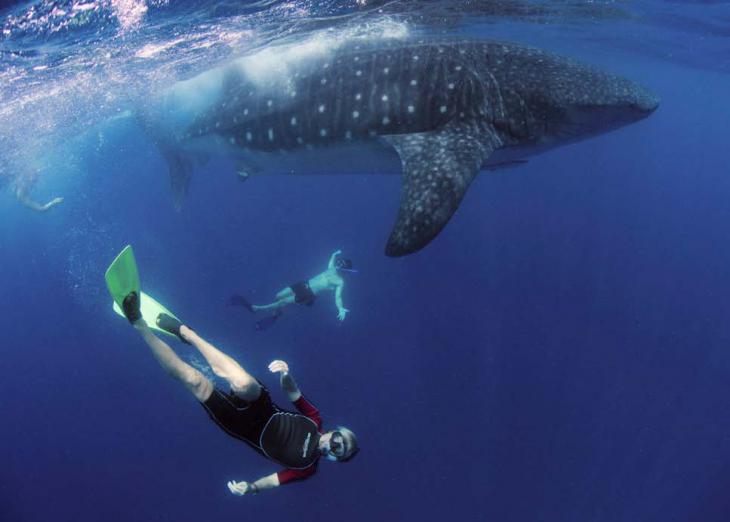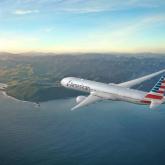
In a bid to safeguard biodiversity and the Caribbean’s tourism-based economy, regional political leaders and corporate executives gathered recently on billionaire Richard Branson’s private island with the aim of protecting 20 percent of the region’s coastal resources by 2020.
Participants announced various commitments to advance the “Caribbean Challenge,” an initiative that is touted as the first comprehensive conservation endeavor in the region of scattered islands that has 10 percent of the world’s coral reefs and some 1,400 species of fish and marine mammals. To safeguard the Caribbean’s future, Branson says politics and business-as-usual will have to change.
The adventuring CEO and founder of the Virgin Group of companies co-hosted the meeting of political and business leaders at Necker Island, his home in the British Virgin Islands where he has developed an ultraexclusive eco-resort that showcases renewable energy technology and reintroduced flamingoes. “It’s just so important to get every single Caribbean country 100 percent behind protecting the wonderful sea life and the wonderful reefs and mangroves, and therefore the species that occupy our oceans,” Branson said. British Virgin Islands Premier Orlando Smith and Grenada Prime Minister Keith Mitchell also co-hosted the gathering of delegations from nine Caribbean countries, chiefs of resort companies and cruise lines, representatives of the World Bank, United Nations and other international bodies, private foundations and environmental groups.
The challenges are many in the ecologically stressed Caribbean, which covers some 10,000 square kilometers (3,860 square miles). Once brilliant coral reefs have lost their luster due to warming waters and disease. Live coral cover has plummeted to an average of just 8 percent from 50 percent in the 1970s, the International Union for Conservation of Nature says. Threefourths of the reefs are considered threatened, also degraded by overfishing, runoff pollution and coastal development. “In the past, the Caribbean has not been great at protecting the eagle rays and the sharks and the reef fish and so on,” Branson said. Some of the Caribbean Challenge’s participating countries — Bahamas, Jamaica, Dominican Republic, Puerto Rico, Grenada, St. Lucia, St. Kitts & Nevis, St. Vincent & the Grenadines, and the British Virgin Islands — have already taken steps to reach their conservation targets. The Dominican Republic has actually exceeded its 20 percent goal by creating more than 30 new protected areas in recent years.
The Bahamas established the largest marine protected area in the region by expanding a national park in Andros from 185,000 acres to 1.28 million acres. Jamaica has set up several “no-take” fishing sanctuaries. But there are questions about how deep the political will really is in a region with heavily indebted governments. Political leaders have long spoken about the need for protecting coasts, developing alternative energy sources and diversifying tourism-dependent economies but little has been accomplished. One country, Antigua & Barbuda, recently dropped out of the initiative for reasons that are not clear.




